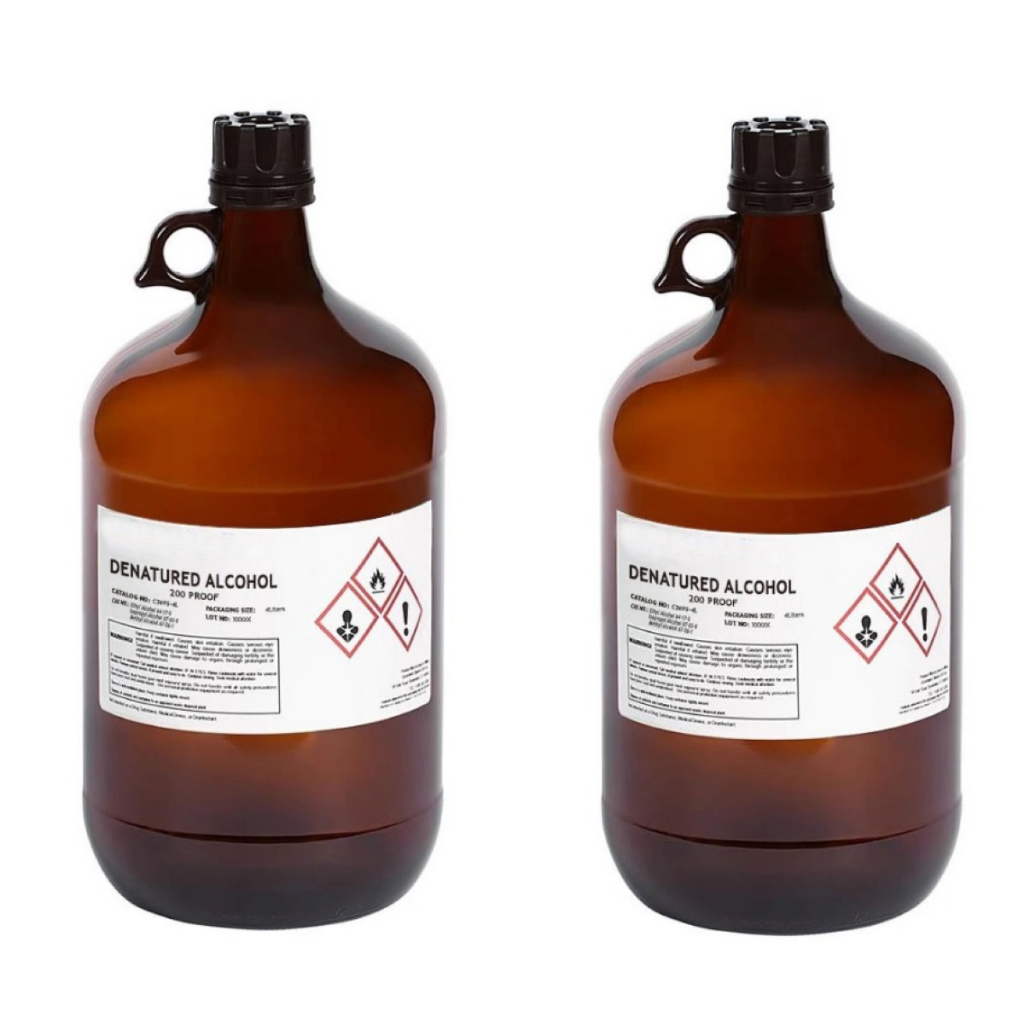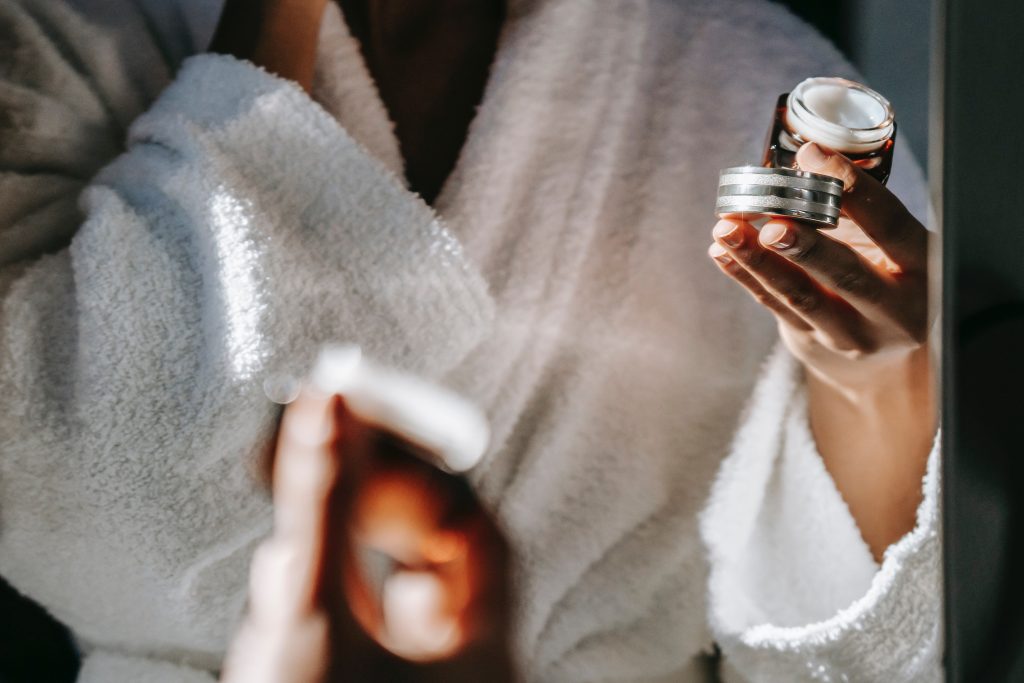Discover everything you need to know about Alcohol Denat in our comprehensive guide.
The Ultimate Guide to Alcohol Denat: Everything You Should Know
Alcohol Denat has become a hot topic in the world of skincare. With its controversial reputation, it’s no wonder that people are confused about its role and effects on the skin. In this ultimate guide, we will dive into the world of Alcohol Denat and uncover everything you need to know to make informed decisions about its use in your skincare routine.

Understanding Alcohol Denat: What You Need to Know
Before we dig deeper into the complex world of Alcohol Denat, let’s start with the basics. Alcohol Denat, also known as Denatured Alcohol, is a form of alcohol that has been modified to make it unfit for consumption. This modification is achieved by adding denaturants, which are substances that render the alcohol undrinkable.
Alcohol Denat is a widely used ingredient in various industries, including skincare, cosmetics, and pharmaceuticals. Its popularity stems from its versatility and ability to serve multiple purposes. However, it is essential to understand its composition and effects before incorporating it into your daily routine.
Exploring the Composition of Alcohol Denat
Alcohol Denat is primarily composed of ethanol, which is the same alcohol found in alcoholic beverages. However, it also contains a variety of denaturants, such as methanol or isopropyl alcohol. These denaturants are what give Alcohol Denat its distinctive odor and taste, making it unpalatable.
It is important to note that the specific composition of Alcohol Denat can vary depending on its intended use. Different industries may add specific denaturants to meet their requirements. For example, in skincare products, additional ingredients like fragrances or essential oils might be included to enhance the product’s sensory experience.
Now that we have a basic understanding of what Alcohol Denat is, let’s delve deeper into its role in skincare.
In the skincare industry, Alcohol Denat is commonly used as a solvent, preservative, and penetration enhancer. As a solvent, it helps dissolve other ingredients and aids in the formulation of various products. Its preservative properties help extend the shelf life of skincare products, ensuring they remain safe and effective for longer periods.
Furthermore, Alcohol Denat acts as a penetration enhancer, allowing other beneficial ingredients to penetrate the skin more effectively. This property is particularly useful in skincare products that aim to deliver active ingredients deep into the skin layers for optimal results.
However, it is important to note that Alcohol Denat can have both positive and negative effects on the skin, depending on its concentration and formulation. While it can help control excessive oil production and provide a mattifying effect, it can also disrupt the skin’s natural moisture balance and lead to dryness or irritation.
Therefore, when considering skincare products containing Alcohol Denat, it is crucial to assess your skin type and sensitivity. Individuals with dry or sensitive skin may want to avoid products with high concentrations of Alcohol Denat or opt for alternatives that offer similar benefits without the potential drawbacks.
In conclusion, Alcohol Denat is a widely used ingredient in skincare products due to its versatile properties. Understanding its composition and effects can help you make informed decisions when selecting products that incorporate this ingredient. Remember to consider your skin type and sensitivity to ensure the best possible skincare experience.
Decoding the Role of Alcohol in Skincare
The Science Behind Alcohol as a Solvent in Skincare Products
One of the key reasons alcohol is used in skincare products is its ability to act as a solvent. It helps dissolve other ingredients, allowing them to mix smoothly and evenly. This ensures that the product spreads easily on the skin and is absorbed effectively.
When alcohol is used as a solvent, it creates a homogeneous mixture of all the ingredients in the skincare product. This means that each component is evenly distributed, ensuring that the product delivers its intended benefits to all areas of the skin. So, whether you’re applying a moisturizer or a serum, alcohol helps ensure that the active ingredients are evenly dispersed, maximizing their effectiveness.
Furthermore, alcohol’s solvent properties contribute to the stability of skincare products. By dissolving various ingredients, it helps prevent separation or clumping, ensuring that the product remains consistent in texture and appearance over time.
Cleansing Benefits of Alcohol in Skincare
Alcohol Denat is also known for its cleansing properties. It can help remove excess oil, dirt, and impurities from the skin, leaving it feeling fresh and revitalized. However, it’s important to note that excessive use of alcohol-based cleansers can lead to dryness and irritation, so moderation is key.
When alcohol is used as a cleansing agent, it acts as a degreaser, breaking down the oils and sebum that can clog pores and contribute to acne breakouts. The alcohol molecules have a small size, allowing them to penetrate the skin’s surface and dissolve these impurities effectively.
Moreover, alcohol’s antimicrobial properties make it an effective ingredient in cleansing products. It helps kill bacteria and other microorganisms that may be present on the skin’s surface, reducing the risk of infections and promoting a healthier complexion.
Alcohol as a Preservative and Antibacterial Agent in Skincare
In skincare formulations, Alcohol Denat is often used as a preservative due to its antimicrobial properties. It helps prevent the growth of bacteria, fungi, and other microorganisms that can spoil the product or cause skin infections. This makes alcohol-based products more shelf-stable and less prone to contamination.
By inhibiting the growth of microorganisms, alcohol helps prolong the shelf life of skincare products, ensuring that they remain safe and effective for a longer period. This is particularly important for products that contain water or other moisture-rich ingredients, as they can provide an ideal environment for microbial growth.
Additionally, alcohol’s antibacterial properties make it a valuable ingredient in skincare products targeted towards acne-prone skin. It helps reduce the presence of acne-causing bacteria on the skin’s surface, minimizing breakouts and promoting a clearer complexion.
Enhancing Product Penetration with Alcohol
Alcohol Denat has a unique ability to enhance the penetration of other ingredients into the skin. It helps break down the skin’s natural barrier, allowing active ingredients to penetrate deeper and exert their beneficial effects. This can be particularly useful when targeting specific skin concerns, such as acne or hyperpigmentation.
When alcohol is applied to the skin, it temporarily disrupts the lipid barrier, which is responsible for preventing excessive water loss and protecting the skin from external aggressors. By doing so, alcohol allows other ingredients in the skincare product to penetrate deeper into the skin, reaching the underlying layers where they can address specific skin concerns more effectively.
Furthermore, alcohol’s ability to enhance ingredient penetration can also improve the bioavailability of certain compounds. This means that the skin can absorb and utilize these ingredients more efficiently, maximizing their potential benefits.
The Role of Alcohol in Adjusting Product Thickness
Alcohol Denat is often used in skincare to adjust the consistency and thickness of products. It can help create lightweight formulas that are easily absorbed and non-greasy. However, it’s worth mentioning that excessive use of alcohol in formulations can lead to a drying effect, so it’s important to strike the right balance.
When alcohol is added to skincare products, it can help reduce the viscosity of the formulation, making it easier to spread and apply. This is particularly beneficial for products like serums or lotions, where a lightweight texture is desired.
Additionally, alcohol’s ability to evaporate quickly contributes to the non-greasy feel of many skincare products. It helps the product absorb into the skin without leaving a heavy or sticky residue, providing a comfortable and weightless experience.
Alcohol as an Antifoaming Agent in Skincare
In certain skincare products, such as foaming cleansers or shaving creams, Alcohol Denat is used as an antifoaming agent. It helps prevent excessive foaming and creates a smoother texture. This can be beneficial for those who prefer a less bubbly experience during their skincare routine.
When alcohol is added to foaming cleansers or shaving creams, it helps reduce the formation of excessive foam. This can be advantageous for individuals with sensitive skin, as excessive foam can sometimes cause dryness or irritation.
Moreover, alcohol’s antifoaming properties contribute to the overall texture and feel of the product. It helps create a smoother consistency, allowing the product to glide more easily across the skin’s surface, ensuring a comfortable and enjoyable skincare experience.
Debunking the Myths: Is Alcohol Denat Harmful to the Skin?
Now that we have explored the various roles of Alcohol Denat in skincare, it’s time to address the elephant in the room: the concerns regarding its potential harm to the skin.
Alcohol Denat and Vegan Skincare: What You Should Know
Vegan skincare has gained popularity in recent years, with consumers prioritizing products that are free from animal-derived ingredients or animal testing. When it comes to Alcohol Denat, it’s important to consider its ethical implications in the context of vegan skincare.
Considering the Ethical Implications of Alcohol Denat in Skincare
Alcohol Denat is typically derived from natural sources, such as grains or sugarcane. However, the production process may involve the use of animal-derived substances or testing on animals, depending on the brand’s practices. If ethical considerations are important to you, make sure to research and choose brands that align with your values.
Making Informed Choices: Should You Avoid Alcohol Denat?
With all the information we have uncovered, you might be wondering whether you should avoid Alcohol Denat altogether. The answer, as always, is not black and white. It ultimately depends on your specific skin type, concerns, and personal preferences.
Factors to Consider When Deciding to Use Alcohol Denat in Skincare
If you have normal to oily skin and are not prone to sensitivity or dryness, alcohol-based products may work well for you. However, if you have dry or sensitive skin, it’s best to proceed with caution and monitor how your skin reacts to products containing Alcohol Denat.
Addressing Concerns for Acne-Prone Skin and Alcohol Denat Use
Acne-prone skin requires extra care and attention. While alcohol can be beneficial for oily skin types due to its oil-reducing properties, it can also cause dryness and irritation, which can worsen acne. If you have acne-prone skin, consider consulting with a dermatologist to determine the best approach for your specific needs.
Ensuring Safety: Is Alcohol Denat Safe for Skincare Use?

When used in moderation and in the right formulations, Alcohol Denat is generally considered safe for skincare use. However, it’s crucial to avoid products with high concentrations of alcohol or prolonged use, as this can disrupt the skin’s natural moisture barrier and lead to dryness, redness, and irritation.
As with any skincare ingredient, it’s always best to listen to your skin and pay attention to how it reacts. If you notice any adverse effects or discomfort, it’s wise to discontinue use and seek advice from a skincare professional.
Now armed with a comprehensive understanding of Alcohol Denat, you can make informed decisions and navigate the world of skincare with confidence. Remember, skincare is personal, and what works for one person may not work for another. Embrace your uniqueness and experiment until you find the perfect balance for your skin’s needs.






[…] it’s not the same alcohol you’ll find in your favorite margarita or piña colada. SD Alcohol 40 goes by many other names, like Alcohol Denat or Ethanol, and it’s often derived from natural sources like grain or […]
[…] I’m here to introduce you to the secret weapon behind the magic – Potassium Sorbate! In this ultimate guide, we’ll dive deep into the wonderful world of Potassium Sorbate, uncovering its uses, benefits, […]
[…] our personal care products? Don’t worry, dear reader, for I am here to enlighten you! In this ultimate guide, we will delve into the world of laureth ingredients, specifically focusing on laureth-23. So […]